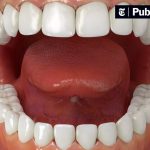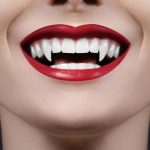Why Do My Teeth Keep Breaking? Common Causes and Prevention Tips
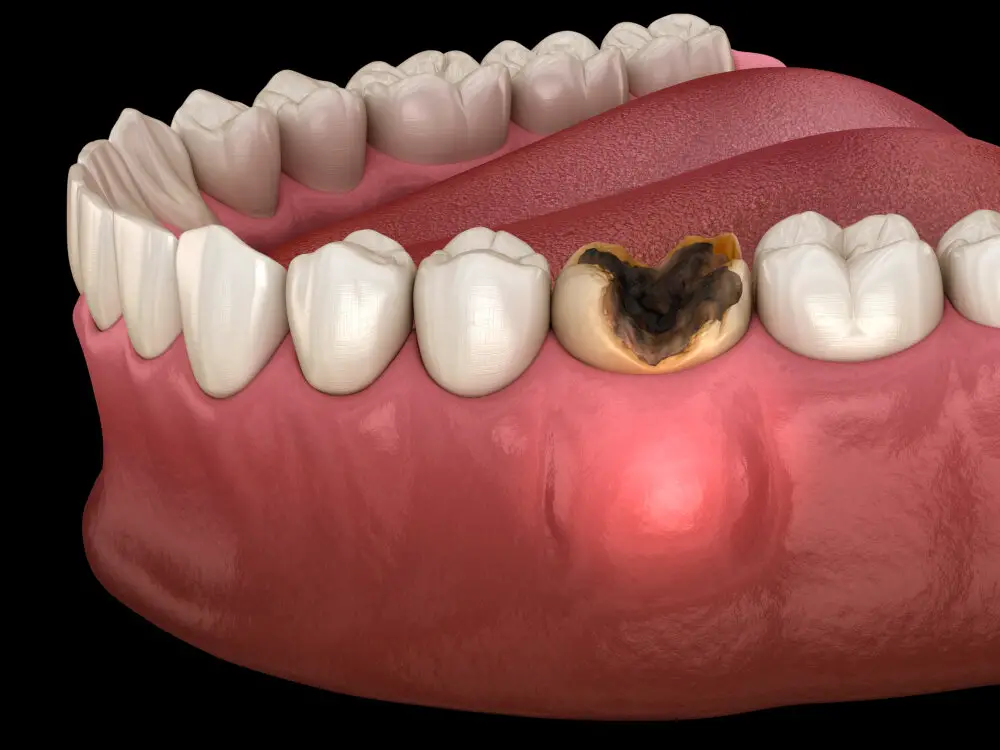
Teeth are an essential part of our body, and we rely on them to chew, bite, and speak. However, many people experience the frustrating problem of teeth breaking or chipping frequently. It can cause pain, discomfort, and a significant inconvenience in daily life. While some causes of broken teeth are apparent, others may be less obvious. It’s vital to understand the reasons behind the issue to prevent it from happening again and maintain good oral health. There are various reasons why teeth can break or chip, and it’s not always due to poor oral hygiene. Factors such as accidents, injuries, and even genetics can contribute to the problem. Moreover, certain habits like grinding or clenching teeth can also put excessive pressure on them, leading to fractures or cracks. This article aims to explore the most common causes of broken teeth and provide prevention tips to help you keep your smile healthy and intact.
Tooth breakage refers to the fracturing or chipping of a tooth, which can occur due to various reasons such as trauma, decay, or weakening of the tooth structure. It is a serious concern as it not only affects the appearance of the smile but can also cause pain, sensitivity, and difficulty in chewing. Moreover, broken teeth can lead to further dental problems such as infections or abscesses. If left untreated, tooth breakage can lead to the loss of the affected tooth, which can affect the alignment of surrounding teeth and lead to costly dental treatments in the future. Therefore, it is important to address tooth breakage as soon as possible to prevent further damage and maintain good oral health.
Maintaining dental health is crucial for overall well-being. Poor oral hygiene can lead to various dental problems, including tooth decay, gum disease, and tooth loss. These issues can cause pain, discomfort, and even affect one’s self-esteem. Neglecting dental health can also lead to systemic health problems like heart disease, diabetes, and respiratory infections. Therefore, it is essential to maintain good dental hygiene by practicing regular brushing, flossing, and visiting the dentist for routine check-ups. A balanced diet and avoiding harmful habits such as smoking and excessive alcohol consumption can also help maintain healthy teeth and gums. Investing in dental health can prevent costly and painful dental procedures and promote a healthy and confident smile.
Common Causes of Tooth Breakage
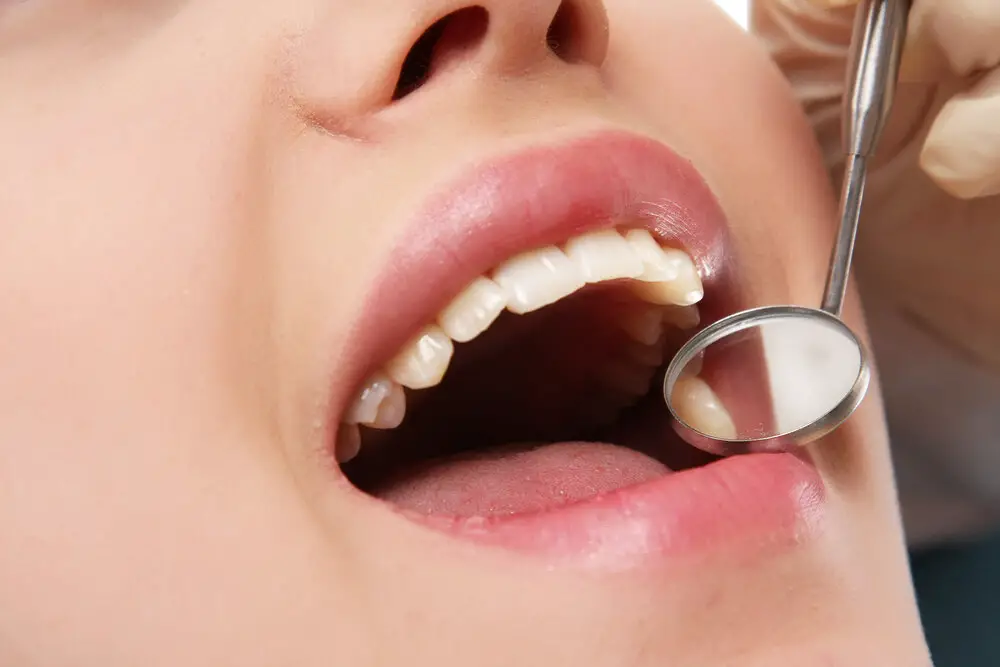
Tooth breakage is a common dental issue that affects many individuals. It can be caused by a variety of factors, including poor oral hygiene, tooth decay, and trauma. Poor oral hygiene can lead to the buildup of bacteria and plaque on the teeth, which weakens the enamel and makes it more susceptible to breaking. Tooth decay can also weaken the structure of the tooth, making it more prone to breakage. Trauma, such as a fall or a blow to the face, can cause immediate tooth breakage or weaken the tooth over time, leading to eventual breakage. Other factors that can contribute to tooth breakage include grinding or clenching the teeth, biting on hard objects, and consuming acidic or sugary foods and drinks. Preventing tooth breakage can be achieved by maintaining good oral hygiene practices, such as brushing and flossing regularly, and visiting the dentist for routine checkups and cleanings. Avoiding sugary and acidic foods and drinks can also help to prevent tooth decay and breakage. Wearing a mouthguard during high-impact sports or activities can protect the teeth from trauma. Additionally, avoiding habits such as grinding or clenching the teeth and biting on hard objects can also reduce the risk of tooth breakage. By taking these preventative measures, individuals can protect their teeth from breakage and maintain good oral health.
The anatomy of a tooth is comprised of different layers that serve different functions. The outermost layer, known as enamel, is the hardest substance in the human body and provides protection against wear and tear. Beneath that lies the dentin, which is softer and more porous than enamel and helps to absorb shock. The innermost layer is the pulp, which contains nerves and blood vessels that keep the tooth alive. When any of these layers are compromised due to factors such as decay, trauma, or improper dental care, the tooth can become weaker and more prone to breakage. It’s essential to maintain good oral hygiene practices and seek prompt dental care to prevent tooth breakage and maintain healthy teeth.
Grinding or clenching teeth, also known as bruxism, is a common dental problem that can lead to tooth damage and jaw pain. This condition is often caused by stress or anxiety, but it can also be a result of an abnormal bite or missing teeth. People who grind their teeth may not even be aware that they are doing it, as it often occurs during sleep. However, the constant pressure can wear down the enamel and cause teeth to crack or break. To prevent this from happening, a night guard can be worn to protect teeth during sleep, and stress-reducing techniques such as meditation or therapy can be employed to alleviate the underlying cause.
Trauma or injury to the mouth can be a common cause of teeth breaking. Whether it’s a slip and fall, a sports injury, or a car accident, the impact can cause significant damage to the teeth. The force of the impact can cause chips, cracks, and even fractures in the teeth. Trauma to the mouth can also result in damage to the gums, jawbone, and surrounding tissues. It’s important to seek prompt medical attention if you experience any trauma to the mouth to prevent further damage and ensure proper healing. Taking preventive measures such as wearing a mouthguard during sports or activities and avoiding hard foods can also reduce the risk of injury to the mouth and teeth.
Consuming hard or chewy foods can be a common cause of tooth breakage. When you bite down on something hard like ice or popcorn kernels, or chewy like caramel or gummies, you put a lot of pressure on your teeth which can cause them to crack or fracture. This is especially true if you have weak or damaged teeth, or if you tend to grind or clench your teeth. To prevent tooth breakage from hard or chewy foods, it’s important to be mindful of what you’re eating and to avoid biting down on anything that feels too hard or difficult to chew. You can also strengthen your teeth by maintaining good oral hygiene, eating a balanced diet rich in calcium and vitamin D, and visiting your dentist for regular check-ups and cleanings.
Poor dental hygiene is one of the most common causes of tooth breakage. Neglecting to brush and floss regularly can lead to the buildup of plaque and bacteria, which can cause decay and weaken the teeth. Over time, this decay can spread to the inner layers of the teeth, causing them to become brittle and prone to breaking. In addition, consuming too many sugary or acidic foods and drinks can also contribute to tooth decay and erosion, further weakening the teeth. To prevent tooth breakage due to poor dental hygiene, it is important to maintain a consistent oral hygiene routine and limit consumption of harmful foods and drinks.
Prevention Tips
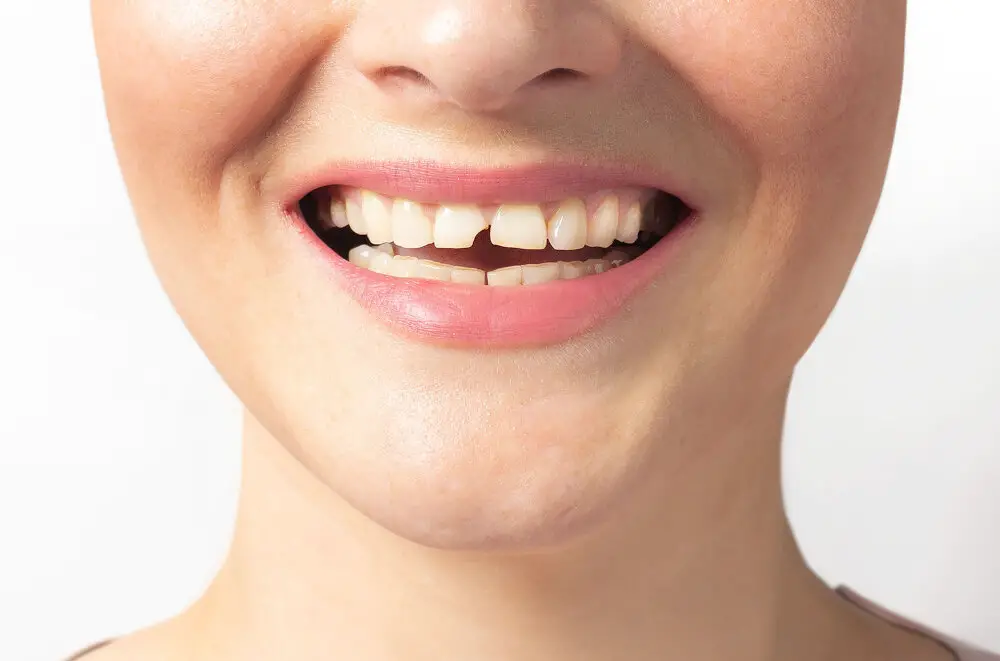
Prevention is key when it comes to maintaining healthy teeth and avoiding the common causes of tooth breakage. One of the most important tips for preventing tooth breakage is to practice good oral hygiene. This includes brushing your teeth twice a day, flossing daily, and using mouthwash to kill bacteria that can cause tooth decay. Additionally, it’s important to avoid sugary and acidic foods and drinks as much as possible, as these can eat away at your tooth enamel and weaken your teeth. If you do consume these types of foods or drinks, be sure to rinse your mouth with water afterwards to help neutralize the acid. Another important prevention tip is to wear a mouthguard if you participate in sports or other activities that could result in a blow to the mouth. This can help protect your teeth from being chipped or cracked. Additionally, avoid using your teeth as tools to open packages, bite your nails, or chew on hard objects like ice or pens. These actions can put unnecessary strain on your teeth and increase your risk of tooth breakage. By following these prevention tips, you can help keep your teeth strong and healthy and avoid the need for costly and painful dental procedures.
Regular dental checkups and cleanings are crucial for maintaining healthy teeth and preventing them from breaking. During a dental checkup, a dentist can identify any potential issues, such as decay or cracks, and provide treatment before they worsen. Additionally, cleanings help remove plaque and tartar buildup that can weaken teeth and cause them to break. Neglecting regular dental checkups and cleanings can lead to more serious issues, such as tooth loss or gum disease, which can be costly to treat and impact overall health. Therefore, it is important to prioritize dental hygiene and visit a dentist at least twice a year to ensure the longevity of your teeth.
Using a mouthguard while playing sports or during teeth grinding can help prevent dental injuries and fractures. Mouthguards cover and protect the teeth and gums, reducing the impact of blows to the face and jaw. They are especially important for high-contact sports like football, hockey, and boxing. Mouthguards can also be custom-made by a dentist to fit the individual’s teeth, providing a comfortable and secure fit. For those who grind their teeth at night, a mouthguard can help alleviate the pressure on the teeth and prevent further damage. By investing in a mouthguard, athletes and teeth grinders can protect their oral health and avoid the expense and discomfort of dental repairs.
One of the most common reasons why teeth break is due to eating hard or chewy foods. These types of foods can put a lot of pressure on your teeth, especially if you have weak or compromised enamel. To prevent your teeth from breaking, it’s important to avoid biting down on hard foods like ice, hard candy, and popcorn kernels. Additionally, you should also limit your intake of chewy foods like caramels and taffy. If you do decide to indulge in these types of treats, make sure to chew slowly and carefully to reduce the amount of pressure on your teeth. By taking these simple precautions, you can help protect your teeth and prevent them from breaking.
Maintaining proper dental hygiene is essential for healthy teeth and gums, and can prevent many dental problems, including tooth decay and gum disease. Brushing your teeth twice a day with fluoride toothpaste is the foundation of good oral hygiene, and it’s important to use a soft-bristled toothbrush and a gentle circular motion to avoid damaging the teeth and gums. Flossing at least once a day is also crucial for removing plaque and food particles that can get stuck between the teeth and lead to decay. Additionally, avoiding sugary and acidic foods and drinks, and visiting the dentist regularly for cleanings and checkups, can help keep your teeth strong and prevent them from breaking.
Treatment Options

When it comes to treating broken teeth, the options available depend on the severity of the damage. For minor chips or cracks, dental bonding may be an option. This involves applying a tooth-colored resin to the affected area and shaping it to match the surrounding tooth. This is a quick and relatively inexpensive option that can be completed in a single dental visit. Another option for minor damage is dental veneers. These are thin shells that are custom-made to fit over the front surface of the tooth. They can improve the appearance of the tooth and provide some protection against further damage. For more severe cases of tooth damage, a dental crown may be necessary. A crown is a cap that is placed over the tooth to restore its shape and function. This may be needed if a large portion of the tooth has broken off or if there is significant decay present. Crowns can be made from a variety of materials, including metal, porcelain, or a combination of the two. In some cases, a root canal may also be necessary to remove any damaged or infected tissue inside the tooth. Ultimately, the best treatment option will depend on the individual case, and it is important to consult with a dental professional to determine the most appropriate course of action.
Dental bonding and veneers are two popular cosmetic dental procedures that can help restore and improve the appearance of damaged or broken teeth. Dental bonding involves using a tooth-colored resin material to fill in chips, cracks, or gaps in teeth. It is a quick and affordable option that can be completed in a single visit to the dentist. Veneers, on the other hand, are thin shells made of porcelain or composite resin that are placed over the front of teeth to create a more uniform and aesthetically pleasing appearance. While veneers are more expensive and require multiple visits to the dentist, they are a long-lasting solution that can provide a significant improvement in the appearance of broken or damaged teeth.
Crowns and bridges are two common dental procedures used to restore damaged or missing teeth. A crown is a cap that is placed over a damaged tooth to protect it or improve its appearance. It is typically made out of porcelain or ceramic materials and can last for many years with proper care. A bridge, on the other hand, is used to replace one or more missing teeth. It consists of two or more crowns on either side of the gap and a false tooth in the middle. Bridges can be made from a variety of materials, including porcelain, gold, or alloys, and can also last for many years with good oral hygiene practices. Both crowns and bridges are effective solutions for restoring teeth and improving overall oral health.
Root canals are a common dental procedure that is performed to save a tooth that has become infected or damaged. The process involves removing the damaged or infected pulp from the tooth’s root canal and replacing it with a filling. Although the procedure is often associated with pain and discomfort, modern techniques and anesthesia make it relatively painless. Root canals are an effective way to save a tooth that would otherwise need to be extracted, and they can last for many years with proper care. However, it is important to address dental issues promptly to prevent the need for root canals, as they can be costly and time-consuming. Maintaining good oral hygiene and visiting the dentist regularly can help prevent tooth damage and infection.
Extractions, also known as tooth removal, can be necessary for a variety of reasons. In some cases, a tooth may be too damaged or decayed to be saved with a filling or crown, and must be removed to prevent infection or further damage. Additionally, teeth may need to be extracted to make room for orthodontic treatment or to address impacted wisdom teeth. While extractions may seem daunting, modern techniques and anesthesia can make the procedure relatively painless. Following proper aftercare instructions, such as avoiding hard or crunchy foods and keeping the extraction site clean, can help ensure a smooth and speedy recovery.
When to See a Dentist

It is essential to visit a dentist regularly, at least twice a year, to maintain optimal oral health. However, certain symptoms require immediate attention and necessitate a visit to the dentist. Toothaches, sensitivity to hot or cold foods and beverages, bleeding or swollen gums, and sores or ulcers in the mouth are all signs that something is wrong and requires professional care. Ignoring these symptoms may lead to further complications and costly treatments. Additionally, if you notice changes in the appearance of your teeth, such as discoloration or cracks, or experience difficulty chewing or speaking, it is crucial to schedule an appointment with your dentist. These symptoms may indicate underlying dental problems, such as decay or gum disease, and require prompt treatment to prevent further damage. Regular dental checkups and prompt attention to dental issues can help maintain healthy teeth and prevent future dental problems.
One of the most obvious signs of tooth breakage is a visible crack or fracture on the surface of the tooth. However, other symptoms can also indicate that a tooth has been damaged. For example, a tooth that feels loose or seems to move when you bite down may be broken or fractured. Pain or sensitivity when chewing or drinking hot or cold liquids can also be a warning sign of tooth breakage. In some cases, a broken tooth may also cause swelling or inflammation in the gums around the affected tooth. If you experience any of these symptoms, it is important to seek dental treatment as soon as possible to prevent further damage and to preserve the health of your teeth.
Seeking prompt treatment for dental issues is incredibly important for maintaining good oral health. If left untreated, dental problems such as broken teeth can lead to more serious complications such as infections, abscesses, and even tooth loss. Prompt treatment can also help to prevent further damage to the affected tooth and surrounding teeth, ultimately saving you time and money in the long run. Additionally, seeking early treatment can help to alleviate pain and discomfort, allowing you to get back to your daily routine and enjoy your favorite foods without any hindrance. Therefore, if you suspect that you have a dental issue, it is essential to seek treatment from a qualified dentist as soon as possible to avoid further complications.
There are several common causes of teeth breaking, including tooth decay, teeth grinding, and trauma to the mouth. Tooth decay weakens the tooth structure, making it more susceptible to breakage. Teeth grinding, also known as bruxism, can wear down the enamel and cause chips or fractures in the teeth. Trauma to the mouth, such as a fall or a blow to the face, can also result in broken teeth. To prevent teeth from breaking, it is essential to practice good oral hygiene, including brushing and flossing regularly. Additionally, wearing a mouthguard while playing sports or at night to prevent teeth grinding can help protect the teeth. Regular dental check-ups can also help identify and address any dental concerns before they lead to tooth breakage.
Maintaining dental health is crucial not only for the aesthetics of our smile but also for our overall well-being. Poor dental hygiene can lead to several dental problems such as cavities, gum diseases, and tooth decay. These problems can cause severe pain and discomfort, leading to difficulty eating and speaking. Additionally, poor dental health has been linked to several health problems such as heart disease, stroke, and diabetes. Therefore, it is essential to practice good dental hygiene daily, such as brushing twice a day, flossing regularly, and visiting a dentist for routine check-ups. By doing so, we can prevent dental problems and maintain healthy teeth and gums, leading to a healthier and happier life.
Regular dental checkups are crucial for maintaining healthy teeth and preventing dental problems. Visiting a dentist every six months can help identify any issues before they become serious and more costly to treat. Neglecting dental visits may lead to dental problems such as cavities, gum disease, and even tooth loss. Additionally, regular cleanings can remove plaque and tartar buildup that can contribute to tooth decay and gum disease. Taking care of your teeth with regular dental checkups can save you from pain, discomfort and save you money in the long run. So, make it a habit to schedule your dental appointments regularly and keep your teeth healthy and strong.
Conclusion
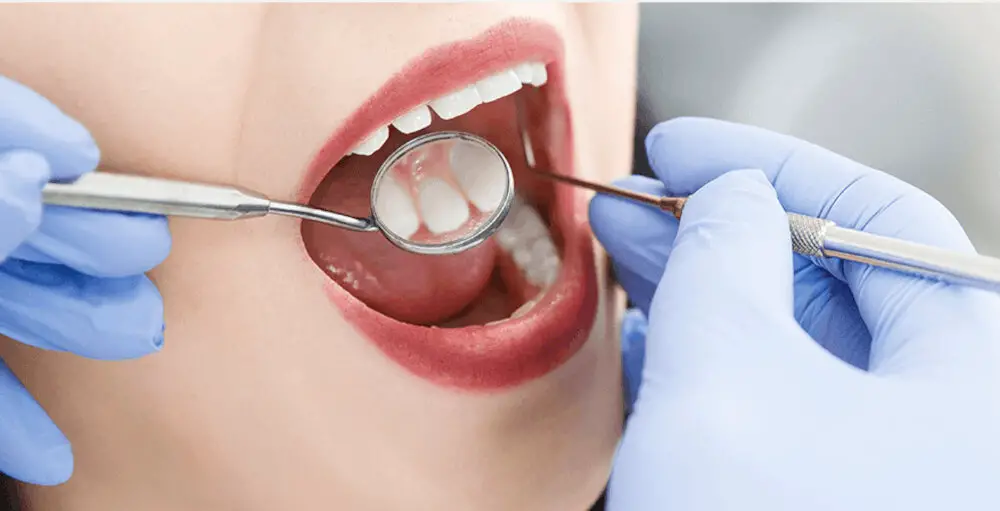
In conclusion, maintaining healthy teeth is crucial to our overall well-being, and the constant breaking of teeth can be a frustrating and painful experience. However, by understanding the common causes of tooth breakage such as poor oral hygiene, teeth grinding, and consuming hard foods, we can take preventative measures to avoid these issues. It’s recommended to visit a dentist regularly, practice good oral hygiene habits, and be mindful of the foods we consume to prevent any tooth-related problems. By following these tips, we can take control of our dental health and enjoy healthy, strong teeth for years to come.


